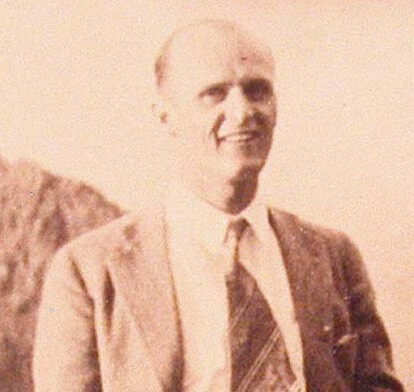
Compared to the prominent family dynasties in the American business world such as the Waltons, Kochs, or Marriotts, the Mars Family and their corporation Mars, Incorporated is a relatively secretive group. Though it is the sixth largest privately held company in the U.S., many of the nuts and bolts of its success are unknown to the public, who better knows the brand for its line of candies such as M&M’s and Snickers. But the history of the Mars family tells the tale of family-driven growth, from initial stumbles to creative success that extends far beyond candy. Ironically for the Mars family however, it may have been a split between father and son that led to this success.
The Milky Way
In 1923, Mars founder Frank Mars was riding high off of the creation of the Milky Way. While his previous attempts in the candy business resulted in failure, this combination of chocolate, nougat, and caramel proved to be a game changer for the company. The legend is that the idea came about from his son Forrest Mars, who wanted a way to combine milkshakes and candy. As such, the Milky Way was advertised as a “chocolate malted milk in a candy bar” and was a runaway success, which grossed $800,000 within a year ($11 million today), representing a ten-fold increase in sales.
Five years after the launch of the Milky Way, Mars Incorporated moved its headquarters to Chicago and was bringing in $20 million in gross revenue. Following the success of the Milky Way, the company soon invented massive follow-up hits including The Snickers Bar and Three Musketeers. But throughout the company’s stellar success, there was discontent brewing within the family between Forrest and his father Frank, which stemmed from an ugly divorce between Frank and Forrest’s mother, Ethel.
The Fallout
The personal issues soon spilled over into the family business. Forrest felt that Mars products lacked uniformity and that management had become lax. When he began implementing his own ideas into practice at the Mars factory, they often contradicted with those of his father’s and created chaos among staff.
The tensions came to a head when Forrest tried to convince his father to give him a third of the company so that he could expand operations to Canada, where he was raised. Frank flatly refused, and as Forrest would later recollect in a conversation with his father, “I told my dad to stick his business up his ass. If he didn’t want to give me a third right then, I said, I’m leaving.”
As a result of the showdown, Frank ultimately gave Forrest $50,000 and the foreign rights to the Milky Way, essentially removing his son from the business. While this may have signaled the end of many family businesses, in time, the Mars brand grew even stronger as a result. Forrest went on to set up operations in the U.K., and armed with his keen business sense and lessons from European candy companies, he created the Mars Bar, which would outsell even the Milky Way in Europe. He would also create a line of canned pet food, a foreshadowing of things to come.
The Prodigal Son Returns
Back home in the United States, Frank Mars passed away at the young age of 50 in 1934. Following his death, the Mars company went through several hands, first to his then-wife, then to his half-brother. In 1945, when Frank’s wife passed, the company then changed hands to Forrest, who immediately took his British business practices in effect and diversified the company.
His work with a European pet food supplier would grow into Whiskas Cat Food, and he joined forces with a Texas salesman to create line of ready-to-make rice called Uncle Ben’s Rice. Despite a few failures here and there, in time, Mars would grow from a candy company into a sprawling food empire.
Forrest also began placing more emphasis on marketing and advertising, and the company went on to sponsor a number of world events, and became the exclusive confectionery and snack provider to Disney World’s Magic Kingdom, Epcot Center and Disney-MGM Studios.
As Mars grew, Forrest would also shape the company culture into the lean model he had wanted. Under him, bureaucracy was kept to a minimum. Writing memos was made against corporate policy, and everyone, even the Mars family, worked on a first name basis. He also placed great emphasis on sharing the company success with its employees.
Forrest also placed equal importance on quality control. Stories of M&M’s being rejected because of the signature M being slightly off center were commonplace and Forrest was known to throw chocolate bars out of the windows if he found them not up to his specifications.
Forrest’s meticulous attitude towards quality would be hammered into his three children, John, Forrest Jr. and Jacqueline. Even after retirement, Forrest Sr. was known for criticizing his children’s decisions if he felt that they went against the principles he established. Despite this rather heavy-handed approach, there is little doubt that it worked, as the Mars family is today the 3rd richest in the U.S., with a $78 billion total net worth.
Some would say being forced out of the company by his father gave Forrest a unique opportunity to create and refine his own vision of what a company could be. It is the irony of this falling out and its contribution to the family’s success that ultimately set the foundation for the business giant that we know today.









